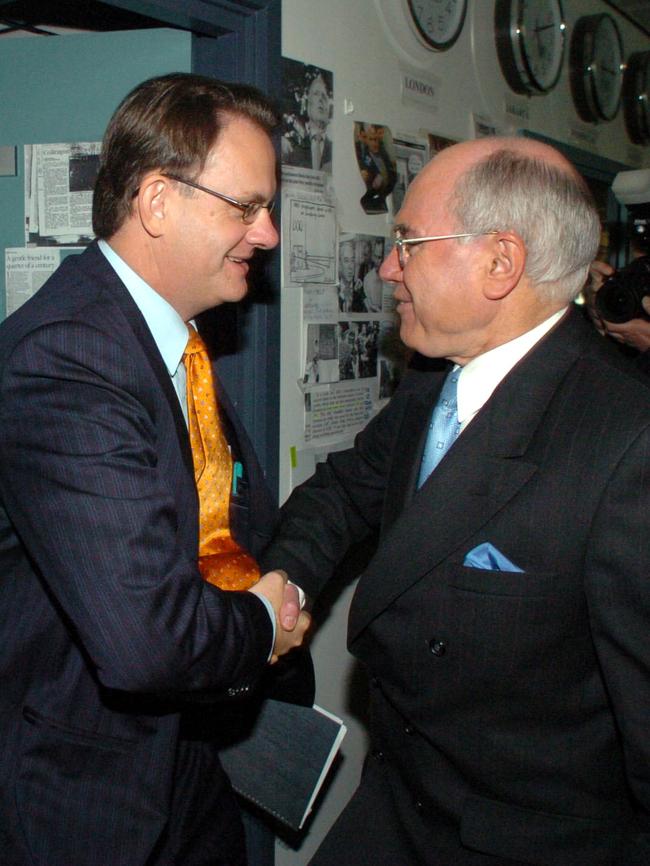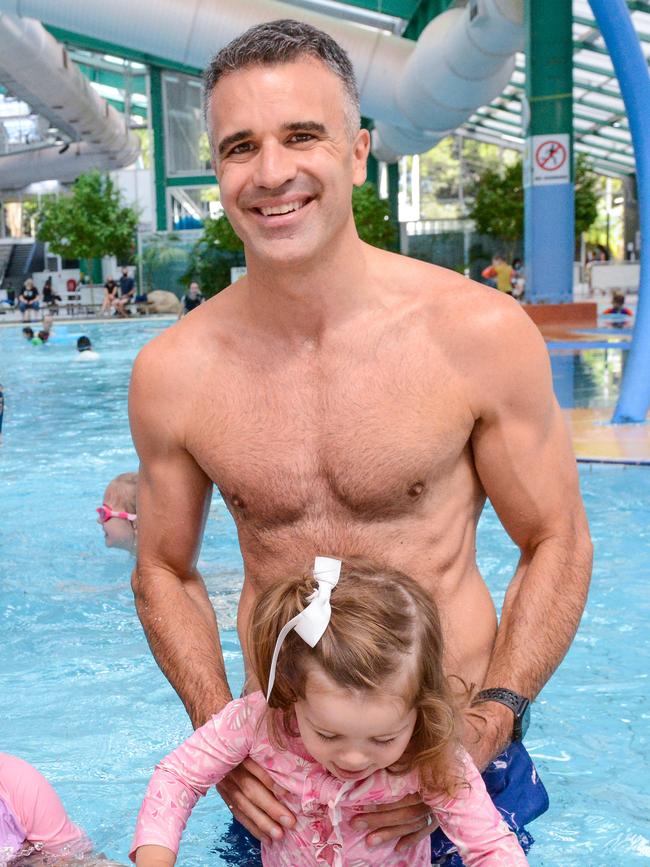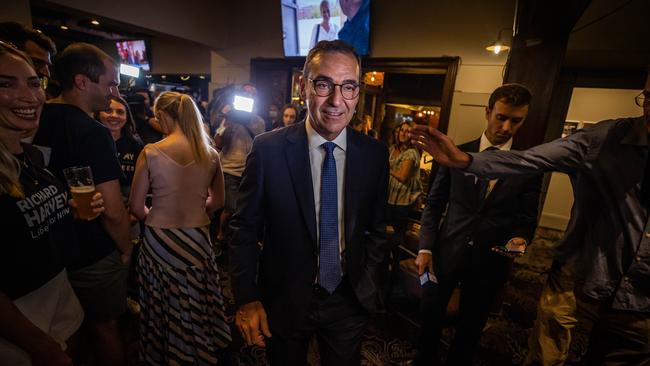Mali beware: The political tide can turn very quickly | David Penberthy
The suddenly scarce Peter Malinauskas has already achieved something John Howard craved. Now the question is can he keep it up, writes David Penberthy.
Opinion
Don't miss out on the headlines from Opinion. Followed categories will be added to My News.
As an unpretentious suburban bloke who was unchanged by the trappings of office, John Howard would routinely take his family for the Christmas break to the modest NSW Central Coast town of Hawks Nest and stay in on-site cabins at the local caravan park. The former PM used to laugh at how his approval rating would go up when he wasn’t working, was out of the headlines, and not making any decisions which risked annoying people.
After all the public razzmatazz of Gather Round and LIV, Peter Malinauskas has been a somewhat obscure political presence of late.
He disappeared for a break during the school holidays – rightly so, as any parent should be allowed to do – but has remained a relatively obscure figure ever since.
It’s not quite at the stage where we need to put his face on a milk carton and list him as missing, but after his high-profile presidential-style election campaign, and having been at the centre of every major announcement since, his lower profile suggests a degree of ease with the way things are tracking for him politically.
Maybe he’s trying to invoke the John Howard rule, whereby the less voters see you, the happier they are.
Howard used to say that the description he most craved as a politician was “all right”.
In the 2004 election campaign when he squared off against Mark Latham, I spent a week travelling around marginal seats in NSW asking random voters one question: what word would they use to describe Mr Howard, and what word would they use to describe Mr Latham?


The Latham replies reflected the full panoply of the former Labor leader’s personality and make-up. A few people described him as a visionary, a breath of fresh air, generational change; most people sort of winced and pulled a slightly worried or wary look, describing him variously as a loose cannon, a bovver-boy, too aggressive.
The most common forms of words to describe Latham were “a bit of a ratbag”.
Conversely, for Howard, with a very small number of exceptions (such as war criminal, racist, liar, past it, yesterday’s man), almost everyone simply described him as “all right”. Howard paid close attention to this vox pop exercise and commented at the time that being regarded as “all right” was the greatest accolade a person could wish for in his line of work.
I suspect that with the exception of his failure to deliver on his central promise of fixing the ramping crisis, Mr Malinauskas is currently enjoying a degree of “all rightness” in the eyes of voters.
It sounds counterintuitive, but it can be tricky to manage this level of political comfort, coming off a big win, with an opposition that looks electorally unthreatening and things tracking generally well.
Being politically comfortable can invite accusations of arrogance and detachment. You can look like you are in cruise control. It can also force the media to step up and play the role of opposition.
When Bob Carr was coasting along in his second term as NSW Labor premier, having already seen off three opposition leaders, we once caught him in question time reading a text book called Der Stufen, which means “Steps” in German.
It was a high school German language book, and the premier was so utterly bored and unchallenged by his political ascendancy that he was using question time as his own private WEA course, quietly mouthing phrases to bone up his linguistic skills.
He was indignant at the allegation of disinterest; using question time as a forum for self-improvement rather than accountability suggested otherwise.
The most ominous recent example of how things can go from awesome to abysmal in record time comes from none other than our immediate past premier Steven Marshall. At the halfway mark of last term it seemed inconceivable that Mr Marshall could lose, with SA having done better than almost anywhere on planet earth in combating Covid.
More importantly – or so it seemed in a political sense – there were signs that Adelaide was getting a real spring in its step. We were voted Australia’s most liveable city; for the first time in decades we reversed our population growth trends and started to pick up residents as the brain drain eased. With no political scandals, no major policy failures, and a general vibe of happiness around the place, South Australia responded to all this by turfing the bloke out after just one term. How’s that for gratitude.

Steven Marshall is the living embodiment of the maxim that with a few rare exceptions, every political career ends in tragedy.
Even John Howard, just three years after seeing off the demented Latham, managed to lose not only the election but his own seat of Bennelong.
The ‘It’s Time’ factor kicked in, with the nation and media labouring under the shared delusion that Kevin Rudd was a well-adjusted man who would deliver stable government.
Malinauskas has been described as a once-in-a-generation politician who communicates and presents well. His genius in winning last year was to home in on the business community’s sense that Marshall was too hands-off during Covid and the public’s disquiet over ambulances and hospitals.
Right now I would say that he’s still got the respect and ear of business, but risks losing the support of the average voter if he fails to deliver on that key ramping promise.
But right now, wherever our Premier might be, he has achieved that state of all rightness which John Howard identified. Sustaining it is another thing altogether. As Steven Marshall would tell you, in politics, things can all going beautifully until they suddenly aren’t.





